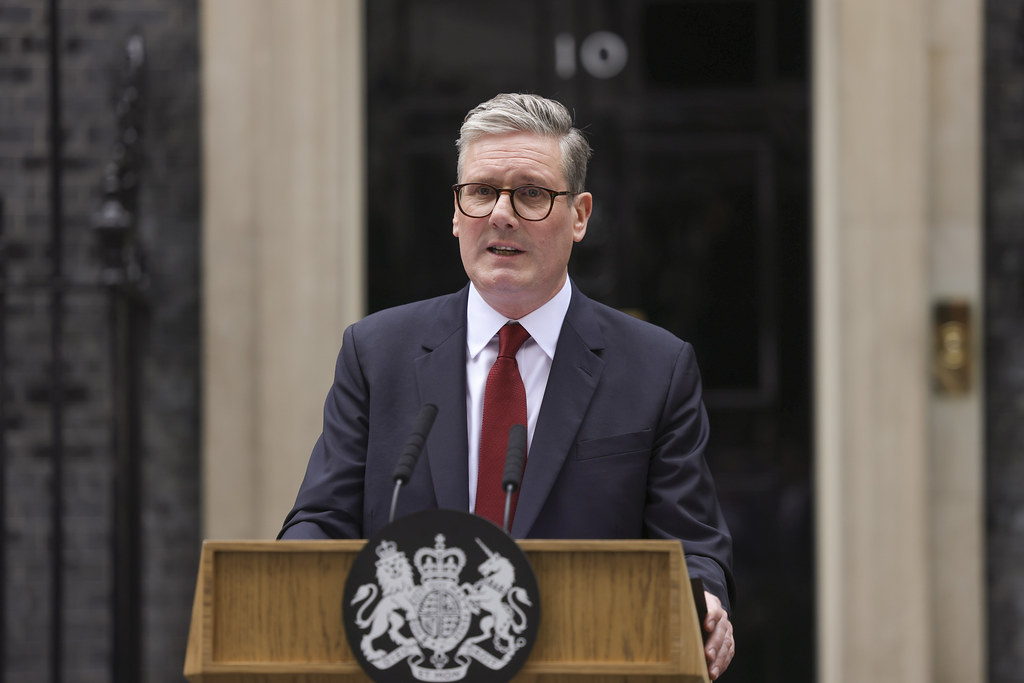The dust has settled, and General Election 2024 is over, with Labour emerging as the winner. As the first Labour government since 2010, Kier Starmer and his MPs will have plenty of ideas about how they can affect change across the UK’s most important areas for small business owners.
Entrepreneurs up and down the UK will today be wondering how the new government will aid them going forward. We’ve taken a look at Labour’s plans for business and the broader economy, and how they might affect you as a small business owner.
Business rates and taxation
The party is reassuring businesses and investors that it will give due warning to any tax and spending changes.
Capping corporation tax at 25 per cent is one of the firm figures of Labour’s manifesto, with an additional promise to adjust this if other countries threaten to challenge UK competitiveness. There are also plans to retain the annual investment allowance for small businesses.
A replacement of the business rates system is also on the cards, with the aim being to close the gap between online retailers and high street shops. Theoretically, this should have the added benefit of revitalising the high street, filling the current glut of empty, boarded up shops.
Reforming the British Business Bank
The party has specifically targeted small businesses as part of its manifesto, which it has described as “the lifeblood of communities and high streets across the country”.
The headline change here is the reformation of the British Business Bank (the government-owned bank that allows small businesses to access financial support). These reforms will make it easier for small and medium-sized businesses to access capital and government contracts, as well as fewer barriers to exporting abroad.
Tackling late payments rounds off this part of Labour’s plans, in a bid to make sure that small businesses and the self-employed are paid on time.
Kevin Fitzgerald, UK Managing Director of Employment Hero, said that Labour needed to back up its plans with improved action:
“Alongside the SME community, I am now looking to the Labour Party for increased support, as outlined in their manifesto. Labour’s commitment to enhancing AI skills development is a welcomed initiative. It’s time to empower our workforce with cutting-edge technological expertise and position the UK at the forefront of innovation. As a business, we pledge to assist the new government in developing the infrastructure needed to make this happen.
“Late payments are a sore subject for most business owners, and the parties pledge to tackle this issue will significantly enhance cash flow management. I’m interested to see how this will be implemented, as it will certainly enable SMEs to operate more smoothly.”
Growth & Skills Levy and Skills England
Labour has announced its plans for a New Deal that would revitalise post-16 education, getting more young people into apprenticeships and reducing unemployment within the 18-21 age group.
This would involve broadening the existing Apprenticeship Levy into the Growth and Skills Levy, which would allow businesses to use up to 50 per cent of their levy contributions in order to fund training on top of apprenticeships.
Labour has called the current apprenticeship system “broken”, with numbers plummeting, causing a skill shortage. Along with its newly proposed “Skills England”, it aims to bring together businesses and training providers in order to plug the skill gap.
Skills England will focus on non-apprenticeship training, which includes functional skills such as digital, technology, social care and childcare.
Tackling energy bills
With energy bills being such a huge hot topic for both businesses and home voters, it was vital that Labour came forward with a plan. This comes in the form of Great British Energy – a new, publicly-owned company that will offer “home-grown” energy production. This will be backed up by £8.3 billion investment.
But what does this mean for energy users and bill payers? The party has said that this new company would come with increased regulation of the energy sector, with a goal of reducing standing charges and automatic customer compensation for when energy fails.
The party also has plans for acceleration towards net zero, such as introducing a carbon adjustment border mechanism, which aims to protect industries that are decarbonising. This will prevent countries from putting lower-quality goods into British markets.
Meanwhile, a National Wealth Fund is also planned to help businesses decarbonise.
Thomas Farquhar, co-founder and chief operating officer of Heatio, a Liverpool-based low carbon tech start-up, says that energy needs to see actual change rather than continuing to be a political debate.
“After years of climate change and energy security being used as a political football, we now need the new government to take immediate action. Promises must be put into action. Time has run out to use energy security, lower bills and net zero as political footballs, we need a consistent, unified approach to this huge cost of living driver and national security issue.
“More support is needed for people to adopt clean technology around the home. With winter just around the corner, now is the time for the new government to show strong leadership both immediately and in the long-term, and show the rest of the world that the UK won’t be left behind.”
Related
General Election 2024 – small business policies you need to know about – The race is on for the General Election 2024, but what are the parties pledging? We look at the policies affecting small businesses.
What could the General Election 2024 mean for small businesses? – The UK General Election is happening on July 4, 2024. What do small business owners and professionals want to see from the next government?
UK Small Business Events and Exhibitions Calendar – A diary of upcoming events of interest for UK SMEs and small business owners. We have listed out each event or exhibition, telling you what each one is about and also where and when all the events are.





